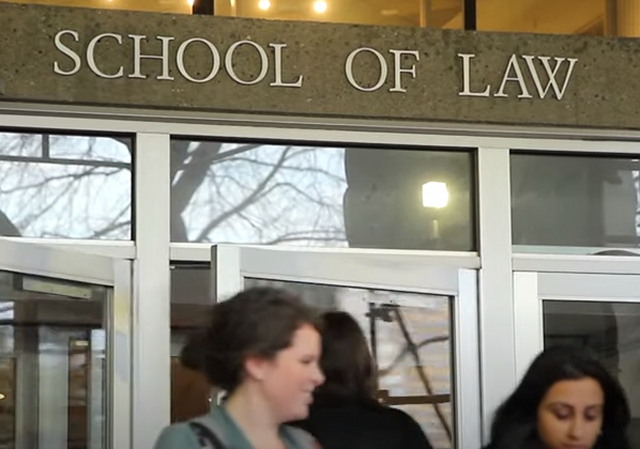Law students offered therapy in wake of recent US Supreme Court rulings
By: Steve Schuster, [email protected]//July 5, 2023//
Law students offered therapy in wake of recent US Supreme Court rulings
By: Steve Schuster, [email protected]//July 5, 2023//

By Steve Schuster
[email protected]
Feeling anxious? Depressed?
Three recent U.S. Supreme Court rulings apparently have some law students on edge (not to mention probably many practicing attorneys, professors and the general public).
In the wake of the recent decisions impacting affirmative action, religious freedom and student debt forgiveness, Boston University School of Law students were offered therapy, according to a written statement issued by BU Law Student Government Association’s (SGA), FOX News reported.
As previously reported, The U.S. Supreme Court on Thursday struck down affirmative action in college admissions, restricting higher education institutions from considering race in college admissions, according to court documents obtained by the Wisconsin Law Journal.
Also as previously reported, the Supreme Court used the case of a Christian mailman who didn’t want to work Sundays to solidify protections for workers who ask for religious accommodations. In a unanimous decision the justices made clear that workers who ask for accommodations, such as taking the Sabbath off, should get them unless their employers show doing so would result in “substantial increased costs” to the business.
According to the statement, the law school is not directly providing therapy for students, but merely providing guidance for the psychotherapy resources already available.
In response to the Court’s ruling on affirmative action, the association wrote, “As many of our students know and Justice Sotomayor says in her dissent, ‘ignoring race will not equalize a society that is racially unequal.'”
Local Attorney reaction
In response to BU Law’s suggestion of therapy regarding recent Supreme Court verdicts, Milwaukee attorney Michael Hupy said, “Sick! You must be kidding.”
“What would these lawyers do if they had to stand next to a client convicted of first-degree murder at the time of his sentencing. What would they do if they worked for the innocence project and they knew their client was in jail for 11 years for a crime he did not commit?” Hupy asked.
Legal News
- Wisconsin attorney loses law license, ordered to pay $16K fine
- Former Wisconsin police officer charged with 5 bestiality felony counts
- Judge reject’s Trump’s bid for a new trial in $83.3 million E. Jean Carroll defamation case
- Dozens of deaths reveal risks of injecting sedatives into people restrained by police
- The Latest: Supreme Court arguments conclude in Trump immunity case
- Net neutrality restored as FCC votes to regulate internet providers
- Wisconsin Attorney General asks Congress to expand reproductive health services
- Attorney General Kaul releases update at three-year anniversary of clergy and faith leader abuse initiative
- State Bar leaders remain deeply divided over special purpose trust
- Former Wisconsin college chancellor fired over porn career is fighting to keep his faculty post
- Pecker says he pledged to be Trump campaign’s ‘eyes and ears’ during 2016 race
- A conservative quest to limit diversity programs gains momentum in states
WLJ People
- Power 30 Personal Injury Attorneys – Russell Nicolet
- Power 30 Personal Injury Attorneys – Benjamin Nicolet
- Power 30 Personal Injury Attorneys – Dustin T. Woehl
- Power 30 Personal Injury Attorneys – Katherine Metzger
- Power 30 Personal Injury Attorneys – Joseph Ryan
- Power 30 Personal Injury Attorneys – James M. Ryan
- Power 30 Personal Injury Attorneys – Dana Wachs
- Power 30 Personal Injury Attorneys – Mark L. Thomsen
- Power 30 Personal Injury Attorneys – Matthew Lein
- Power 30 Personal Injury Attorneys – Jeffrey A. Pitman
- Power 30 Personal Injury Attorneys – William Pemberton
- Power 30 Personal Injury Attorneys – Howard S. Sicula











